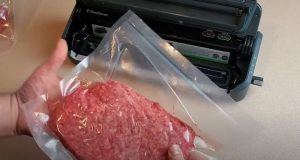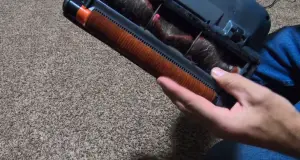Detailed guide about: How long do vacuum packed chestnuts last?
Chestnuts are a delicious, sweet treat that is often vacuum-packed for longer shelf life. However, it is unclear how long vacuum-packed chestnuts last before they go bad and stop being palatable.
Are you wondering how long do vacuum packed chestnuts last? Well, we will discuss all these topics in detail. Besides that, we will explore some of the factors that affect the longevity of this food item.
How long do vacuum packed chestnuts last?
Vacuum packed chestnuts typically last for a short period. The more moisture removed from the nuts, the less likely they will go bad and rot quickly.
However, if you do not store your vacuum-sealed chestnuts in ideal conditions (i.e., away from sunlight or high temperatures), it may not be easy to keep them fresh until consumption.
Furthermore, some food items like chestnuts have been known to dry out after several days. Therefore it is recommended that you eat these types soon after purchase rather than attempt to stock up on them for later use.
Are vacuum packed chestnuts safe?
Vacuum packed chestnuts are completely safe once they arrive at your home, provided no damage has occurred during transport. It is still wise to consume these food items as soon as possible since their shelf life is relatively short when properly kept inside an airtight container with limited exposure to external elements.
What factors affect the shelf life of vacuum packed chestnuts?
Several factors can affect the shelf life of vacuum packed chestnuts. It includes moisture content, exposure to light or heat sources, and oxygen levels inside packaging material. All these actors have an impact on quality after the manufacturing process has ended.
When vacuum packed chestnuts are exposed too much time in hot conditions, there is a chance that nutrients will deplete from them. It leads to spoilage of chestnuts, and color changes from a healthy bright brown hue to an unappealing dullish green.
How to determine when your vacuum sealed chestnut has gone bad?
The best way to determine if your vacuum packed chestnut has gone bad is by smelling it.
If there are any hints of an off smell, you should not consume the food item. The chances are very high that this product will make you sick when eaten. Instead, throw away these nuts to prevent illness from occurring inside your body.
How long do packaged roasted chestnuts last?
Vacuum packed roasted chestnuts are better for longer shelf life.
These nuts can last anywhere between 5 days to 3 weeks if stored properly (i.e., inside an airtight container at room temperature). These products may also be kept in the freezer, which will extend their freshness by some time yet again.
So before you throw away your vacuum sealed chestnuts, try placing them in the fridge or freezer first and see how long they last this way! It is recommended that you eat these types of food items soon after purchase rather than attempt to stock up on them for later use.
How long do canned chestnuts last?
Canned chestnuts typically have a much longer shelf life compared to vacuum packed chestnuts. These food items can last anywhere between 18 months to 2 years if stored properly. For example, inside an airtight container at room temperature.
Canned products are also suitable for consumption after opening. So, you can keep them in the fridge before they start going bad.
How long do fresh chestnuts last?
Fresh chestnuts typically have a much shorter shelf life compared to vacuum packed or canned varieties. It is recommended that these types be consumed shortly after purchase before they go bad.
This short lifespan makes it difficult for consumers who enjoy this type regularly because it cannot be eaten immediately after purchase.
So, it is important to store them at the correct temperature & humidity level for chestnuts to last longer before they are considered bad.
How long do packaged roasted chestnuts last?
Typically they can last for several days or even weeks outside of a refrigerator, depending on how well they were sealed before purchase.
For example, store them in an airtight container at room temperature to preserve freshness until consumption time arrives! Keep reading our blog posts for more information regarding their shelf life and other factors that might affect quality after manufacturing.
How long do bagged chestnuts last?
Bagged chestnuts typically have a very short shelf life compared to other types. It is recommended that these are consumed right away after purchase before they go bad. The spoilage of bagged nuts can be due to exposure during storage, which may lead to them becoming stale or developing an off smell.
Can you get food poisoning from chestnuts?
It is possible for food poisoning to develop after consumption of chestnuts.
This illness can be developed when the nuts are not stored at an appropriate temperature and humidity level. Bacterial overgrowth typically occurs because they were harvested too early or if their skin was damaged before the packaging.
So you must always check your product carefully before consuming it. Look out for abnormal changes such as green-tinted color, black spots on surfaces & off smell, among others. It indicates that spoilage has occurred during storage time so far.
So, throw away these products to protect your health from developing complications later on.
Are chestnuts good for weight loss?
The fiber in chestnuts aids in weight reduction by slowing down the digestion of food and curbing your appetite. They also have a lower fat content than other nuts, making them less calorie-dense.
Conclusion
We hope that you got the answer to your query about how long vacuum packed chestnuts last. We’ve also explored the other options to store chestnuts like bagged chestnuts, canned chestnuts, and more. So, try to keep chestnuts at a suitable temperature so that they last longer.




